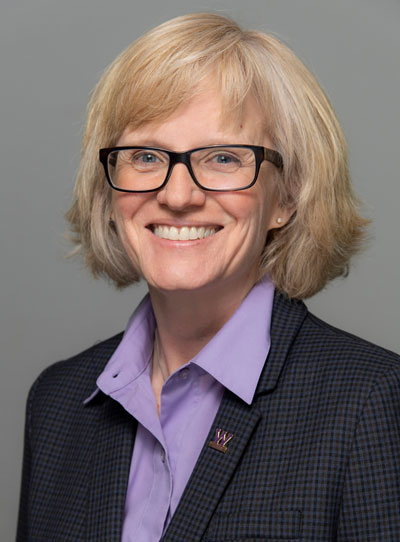
There are bright days ahead for Western Illinois University, but to get there it must end deficit spending, increase and diversify funding, and expand offerings that will prepare WIU students for the future, Interim President Kristi Mindrup said Wednesday. The former vice president of operations for WIU’s Quad Cities riverfront campus outlined those and other […]
Already a subscriber? Log in
Want to Read More?
Get immediate, unlimited access to all subscriber content and much more.
Learn more in our subscriber FAQ.
- Unparalleled business coverage of the Quad Cities
- Immediate access to subscriber-only content on our website.
- 52 issues per year delivered digitally, in print or both.
- Support locally owned and operated journalism.
Do you want to read and share this article without a paywall?
Click here to purchase a paywall bypass linkThere are bright days ahead for Western Illinois University, but to get there it must end deficit spending, increase and diversify funding, and expand offerings that will prepare WIU students for the future, Interim President Kristi Mindrup said Wednesday.
The former vice president of operations for WIU’s Quad Cities riverfront campus outlined those and other priorities – including continuing to expand efforts to create an inclusive campus – during her April 10 inaugural address. The speech was delivered on WIU’s main Macomb campus. It came just 10 days after Ms. Mindrup replaced former President Guiyou Huang. Mr. Huang, who was paid $320,000 per year, announced his departure from the post for family reasons on Friday, March 1. It was effective as of Sunday, March 31.
The WIU Board of Trustees voted on Friday, March 22, to appoint Ms. Mindrup as interim president, effective April 1. She will be paid $22,500 a month, or roughly $270,000 a year, after the trustees said Ms. Mindrup requested her salary be reduced because of the university’s financial challenges.
“Western Illinois University has been woven into the fabric of my family for a lifetime,” Ms. Mindrup said in the speech which was delivered at the College of Fine Arts and Communication Recital Hall and live-streamed on WIU’s YouTube channel.
She said her grandfather was a big fan of WIU and “emphasized the importance of college his whole life.” Her aunt graduated from WIU with a teaching degree in 1972 and Ms. Mindrup’s grandparents traveled frequently to Macomb from the Quad Cities to visit campus and cheer on the Leathernecks.
Though Ms. Mindrup didn’t go to WIU for her undergraduate education degree, her rise to the top spot at WIU began there 27 years ago. That’s when, at her grandfather’s urging, she applied for a Clerk 3 job answering the telephone and doing other duties on nights and weekends at WIU’s satellite campus in the former IBM building in Moline. She collected more degrees and additional jobs and responsibilities at WIU over the years.
“I have crawled around ceilings and cabinets to route cable for video conference classrooms in both the old Quad Cities 60th Street building and (Macomb’s) Horibban Hall. And I have provided leadership for the design, construction, planning and operation of the Quad Cities relocation to the riverfront campus,” Ms. Mindrup said Wednesday.
“Today, I’m standing before you as your new interim president, a role I never intentionally pursued, or for that matter considered something I would be asked or invited to do. Though as I reflect on my WIU experiences, I believe my trajectory illustrates the type of transformation that happens at WIU, whether you are student, faculty or staff member.”
In her speech, she also outlined and embraced the challenges that WIU and other public universities have encountered and shared a multi-step strategy for addressing them.
WIU and other public universities have faced multiple challenges in recent years that have had a negative impact on their ability to thrive. For example, the 2016 Illinois budget impasse and the demographic changes that have impacted enrollment as well as increased scrutiny of financial support for public higher education. And while COVID-19 brought new investments in education, the results were mixed as the pandemic changed the way students and the industry viewed and accessed higher education, she said.
Over the years, WIU has successfully patched together strategies to address “financial bruises,” she said, adding “Our university has enjoyed wins along the way that created a positive momentum shift, yet we know that there’s still important work to do.”
Toward that end, Ms. Mindrup said “We are the right community at the right time to move this institution forward.” To get there, WIU must reshape and deepen existing WIU priorities that have centered on addressing recruiting, student retention and revenue in “ways that inspire direct action.”
Among the strategies and priorities she outlined to create positive impactful growth and increase WIU’s ability to succeed were:
- Promoting a thriving and inclusive environment by promoting a diverse, inclusive campus environment. Those also were top priorities for Mr. Huang when he was hired to lead a university that was facing charges of racism and inequality on campus.
- Addressing deficit spending. “As a university community we are called to recognize that the university is in fact in a budget deficit. It requires attention from everyone at every level and a culture change,” Ms. Mindrup said.
- Issuing a call to action. “Starting now, if you have not already, everyone must recognize that every opportunity to save and not spend puts the university in a better financial position with a path to the other side of the budget deficit,” she added. For example, as the university nears the end of the fiscal year it must reject the old “spend it or lose it” path. “The new mindset should be: save it and keep it,” she added.
- Creating a multi-dimensional financial portfolio that contains numerous sources of funds.
- Looking at how WIU does business and evaluating its financial structures and approaches to create a path to financial health. That also requires WIU to make “big bold asks” like the $20.5 million in additional funds WIU leaders traveled to Springfield last week to request. Those efforts do pay off, she said, pointing to a $2.2 million grant approved for WIU in February to improve college readiness for rural students. “This initiative was a successful big ask; let's do more of this.”
- Responding to what the Western Illinois region needs from higher education. This includes WIU’s growth areas of early enrollment, nontraditional students, and global accessibility.
- Focusing on innovative academic programs and student development initiatives by listening to the needs of the communities, the state and their students. Among the things they currently are asking for, she said are development services that respond to student interest and industry demand and also contribute to workforce development. For example, addressing the teacher shortage and improving mental health.




